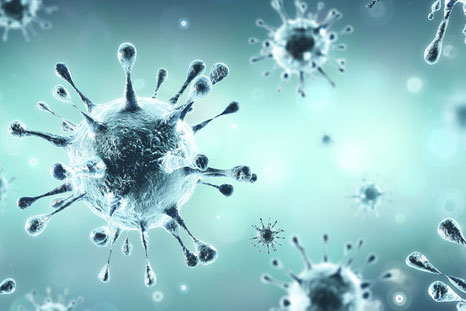
The coronavirus pandemic has thrust science to the centre stage, with governments turning to scientists for advice before taking decisions and implementing measures, and citizens listening to virologists, immunologists and epidemiologists.
The scientific research organisations which make up EIROforum are keen to emphasise that science should not just be centre stage in times of crisis but at all times. Scientific knowledge, in particular knowledge gained from fundamental research, fuels long-term progress and is therefore an indispensable and irreplaceable tool for tackling the challenges facing humanity and building a sustainable society. Science can help prevent future crises or at least mitigate their impact by ensuring that we are properly prepared to confront them effectively.
Throughout history, fundamental research has been a source of scientific breakthroughs, leading to paradigm shifts that have had a profound impact on our lives. Quantum mechanics and genetics are notable examples. Fundamental research is also a driver of innovation through the development of sophisticated instruments and cutting-edge technologies, which find societal applications in many other domains. Humanity is currently facing a multitude of challenges, ranging from climate change and energy needs to public health issues. It stands to reason that without the help of fundamental research and the technologies it generates we will not be able to tackle these challenges successfully. Moreover, in times of crisis scientific facilities such as the EIROforum organisations have the ability to deploy their knowledge and expertise rapidly for the benefit of society. This has been demonstrated over the past year by EMBL with its Covid19 Data Portal, by ESRF with its tomography of an infected lung and by CERN with its Zenodo open-access platform.
However, the importance of fundamental research for a sustainable world goes beyond the knowledge and the technologies it generates. The EIROforum organisations also promote and embrace open science and universally accessible information and education. These are all key drivers for reducing knowledge-based inequalities, empowering people and contributing to a more inclusive and sustainable society. Global challenges call for global solutions and therefore require collaborative efforts on a world scale. Based on cooperation across countries, borders and disciplines, science is an intrinsically universal and unifying enterprise. It is therefore a shining example of how to connect people across the globe.
The world after COVID-19 will need to be driven by a shared, long-term commitment to knowledge, inclusiveness, cooperation and solidarity. Fundamental research will be one of the cornerstones of such a world and, as such, requires strong support.
